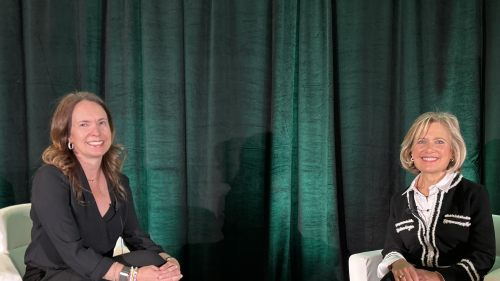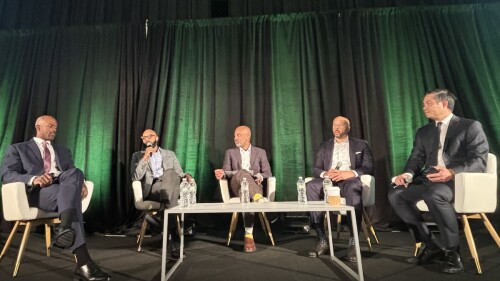Though e-commerce has not signed the death warrant for brick-and-mortar retail, the retail landscape varies vastly by sector and market—even by block in urban settings—and landlords must be more flexible than ever.
“There’s a seismic shift in the way that consumers respond to retail,” said Chris Angelone of JLL Capital Markets, who moderated a retail panel at the 2018 ULI Fall Meeting in Boston. “It’s really scary, but it’s also really exciting.”
In today’s retail marketplace, there is room for everything from massive shopping malls to pop-up stores that enliven vacant streetfront spaces. Street retail presents unique challenges, primarily because neither landlords nor tenants can completely control what goes on in their immediate surroundings.
UrbanMeritage, for example, has established itself as the largest landlord on Boston’s Newbury Street, one of the nation’s top shopping destinations. “You can spend a great deal of time curating your space with cool tenants, and then the non-institutional landlord next door puts in a nail salon or a vape shop,” noted Mike Jammen, a principal at UrbanMeritage. “We don’t do that, and there are blocks we won’t touch for that reason.”
“The notion of ‘if you build it they will come’ has completely changed” said @NewEnglandDev’s Manny Steiner this morning at the #ULIFall panel on #Retail Reinvigorated @UrbanLandInst @ChrisAngelone @UrbanMeritage @_spaceus @BlankLabel pic.twitter.com/vJq9aCx5TE— JLL Boston (@JLLBoston) October 11, 2018
Jammen’s firm aims to control tenancy by owning contiguous buildings—about 50 so far, including 28 that the company sold to an institutional landlord that shares its vision. With these spaces, “we ask tenants who they would like to see next door and who they would not like to see. Successful tenants like to cluster,” Jammen said.
To sign tenants that are cutting-edge but economically viable, Jammen often considers well-managed startup retailers that have an established track record in e-commerce. For example, Meritage has signed deals with Allbirds, which has sold a million pairs of its comfortable wool shoes online, and Rothy’s, which sells shoes made from recycled plastic.
When even the giant of online retailers, Amazon, launches brick-and-mortar stores, it surely is a trend.
Panelist Paige Connell described how her small business, Blank Label, started out selling custom men’s shirts online, but found that many customers were intimidated by the process of measuring, choosing fabrics, and ordering. So, the company launched pop-up stores providing personal service to customers, then opened its first brick-and-mortar store on Newbury Street, only to find that most of its customers wanted to shop near their downtown offices. Now Blank Label’s fast-growing stores are located in office buildings, where they enjoy lower rental rates.
With the challenge of finding and retaining successful street retail tenants, it is no surprise that many storefronts on city streets remain vacant for long periods. And in many cities, local pop-ups and nonprofits are temporarily filling those empty spaces.
Stephanie Lee is one of two graduate students from the Massachusetts Institute of Technology who founded Spaceus, which transforms vacant space into shared creative workspaces and community gathering places. “I was frustrated walking by the same empty spaces in Cambridge for a year at a time,” she said. Spaceus provides coworking space, opportunities for artists to exhibit and sell their work, revenue-sharing deals, and active programming open to the community.
While e-commerce entrepreneurs and street retail landlords are exploring new concepts to appeal to ever-changing consumer tastes, many shopping centers continue to “follow the money,” said panelist Manny Steiner, vice president of leasing at New England Development. Since selling its traditional shopping malls to Simon Property Group in 1999, Steiner’s company has developed mixed-use centers, hotels, restaurants, marinas, golf courses, street retail, airport retail space, and even casinos.
“We have to let go of old notions and rip off the Band-Aid,” said Steiner. “Traditionally, we have looked for high margins, but the margins just aren’t there anymore. We leased to a lot of restaurants, in part because they had funding, but now we are overseated in the full-service restaurant category. You can only eat so many meals.
“Now there is a big focus on wellness,” he said. “We recently did a deal with Modern Acupuncture, which has a built-in revenue stream through membership fees. The pace of change is accelerating. We need to transform our centers, and for that we need flexibility, such as short-term leases to control the space. We need to get the right people on the bus at the right time.”




